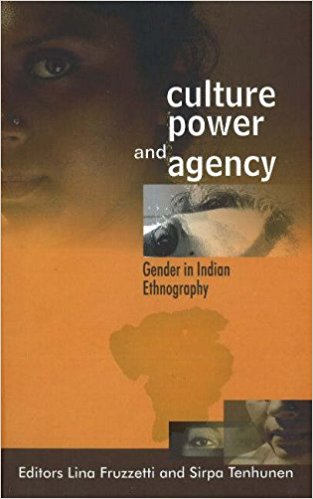The collection of essays entitled Culture Power and Agency, Gender in Indian Ethnography with an incisive introduction by the editors will be an asset to any library or personal collection. The authors contributing to the volume have carefully presented sound theories that are supported by their elaborate fieldwork. The book as claimed by the editors in the introduction bridges the gap between theoretical discussions and empirical findings. Each of the chosen essays brings out the under-privileged women’s agency and their ingenious means of challenging the dominant patriarchal constraints and the restrictive structures that tend to oppress them. However the editors make it clear in the introduction that ‘acknowledging agency does not end power disparities between the genders and within the household though there has been a growing tendency to fuse the concept of power with agency’. In the scholarly introduction the editors using the material offered by the researchers examine the ‘multiple meanings of an expected gender based code of conduct, culture, power and agency’.
Vital questions such as—‘Does agency empower women’?, ‘What does agency imply and what and how does it impact on change?’, ‘Do cultural, gender-based alternatives, openly or secretly, assist women in search of the freedom to voice themselves?’, ‘How do those women who are in a seemingly liminal role like orphans, sterilized and divorced women and others cope with being culturally marginalized?’—are dealt with by almost all the contributors.

